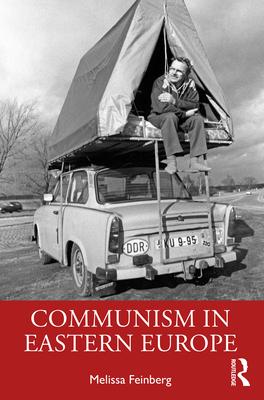Communism in Eastern Europe is a groundbreaking new survey of the history of Eastern Europe since 1945. It examines how Communist governments came to Eastern Europe, how they changed their societies and the legacies that persisted after their fall. Written from the perspective of the 21st century, this book shows how Eastern Europe's trajectory since 1989 fits into the longer history of its Communist past.
Rather than focusing on high politics, Communism in Eastern Europe concentrates on the politics of daily life, melding political history with social, cultural and gender history. It tells the history of this complicated era through the voices and experiences of ordinary people. By focusing on the complex interactions of everyday life, Communism in Eastern Europe illuminates the world Communism made in Eastern Europe, its politics and culture, values and dreams, successes and failures.
This book is an engaging introduction to the history of Communist Eastern Europe for any reader. It is ideal for adoption in a wide array of undergraduate and graduate courses in 20th-century European history.
